17th November 2017 Delhi, India
First ever Newton Prize goes to Indo-UK research and innovation projects
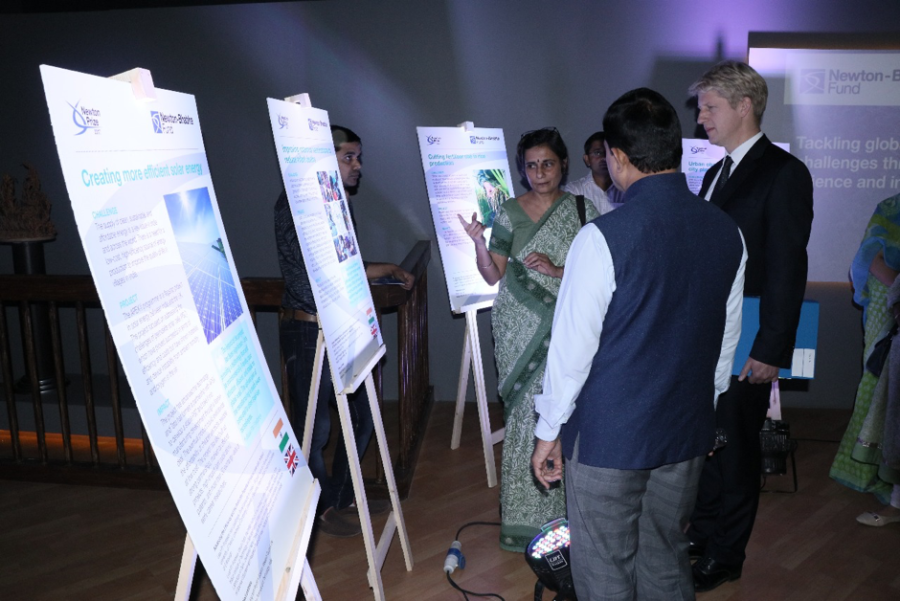
It all started exactly a year ago when Jo Johnson, Minister of State for Science, Research and Innovation launched the prestigious Newton Prize during the India-UK Tech Summit in Delhi.
The Newton Prize is administered through the UK National Commission for UNESCO, and the team has been busy during the year in receiving and reviewing applications leading up to the final committee meeting that took the decision on the final winners. The Newton Fund India team has been quite excited about the Prize since it’s where it was first announced and also where the first two winners for 2017 would be announced. We had been eagerly prepping for the Pceremony and one of the important things we wanted was an interesting place to host it. The UK Science Minister Jo Johnson was very keen that we held the event at the National Science Centre (NSC) in Delhi, as NSC plays a big role in the popularisation of science among the general public, kids and students in particular.
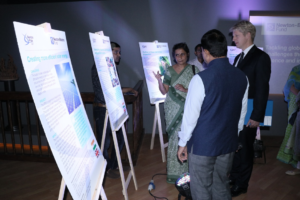
On the day (1 November), the event hosted by Sir Dominic Asquith British High Commissioner to India, kick-started with an exciting showcase of the ten shortlisted Newton-Bhabha projects by their respective lead researchers.
This was immediately followed by the Award ceremony during which the High Commissioner welcomed the audience filled with senior scientists, innovators and government officials and highlighted how the Newton-Bhabha partnership has taken the UK -India relationship to the next level.
The Chief guests at the event included not only Minister Jo Johnson who has been central to the inception of the Newton Prize, Minister Y S Chowdary, the Indian Minister of State for Science and Technology and Earth Sciences, but we were also honoured to have Nobel Laureate Sir Venki Ramakrishnan, who is also the President of the Royal Society and Chair of the Newton Prize Committee.
In his speech, Shri Y S Chowdary spoke warmly about UK India Science and Innovation relationship and said, “Our collaboration with the UK shows how partnerships of the high quality can help both countries advance, as well as have a global positive impact for sustainable development.”
Sir Venki Ramakrishnan shared that it was a tough job to select two winners, given the high quality of research applications that were submitted for the Newton Prize, but the two winning Indo-UK collaborations which both clinched a 200,000 pounds award each had that little edge over other projects.
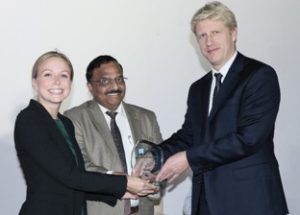
Announcing the Newton Prize winners, Jo Johnson said, “These Newton Prize winners not only embody international collaboration on crucial issues but also illustrate our ambition to work with our global partners on a wide variety of mutually-beneficial research.”
Finally, the moment arrived when the first ever Newton Prize winners were awarded their trophy and a certificate. The first of two winning projects was ‘Evaluation of the introduction on CRADLE Vital Signs Alert (VSA)’ a hand-held device capable of measuring blood pressure and pulse, detecting hypertension and circulatory shock was led by scientists from St Thomas Hospital, King’s College London in partnership with scientists from Jawaharlal Nehru Medical College in Belgaum, Karnataka. The UK and Indian funding partners for this project are Medical Research Council and Department for Biotechnology.
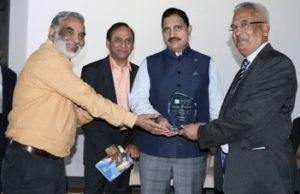
The second winning project was ‘APEX-II programme’ a solar project aimed to increase efficient solar power generation by improving technology around perovskite solar cells, was led by scientists from the Brunel University of London and Indian Institute of Technology, Delhi. The UK and Indian funding partners for this project are Engineering and Physical Sciences Research Council and Department of Science and Technology.
In addition to the announcement of winners, Jo Johnson announced India specific Rutherford Fellowships and further research announcements funded by Newton Bhabha Fund.
After all the exciting announcements, it was time for relaxing and networking for everyone: the winners, runners-up and all the audience along with the chief guests. The evening came to be a great success and team Newton capturing a fan moment with Sir Venki, who is like a rock star in the scientific community especially in India. In the picture below you can spot Sir Venki asking one of the team members (ahem, Rita) not to cover the Newton Prize logo for the group photo.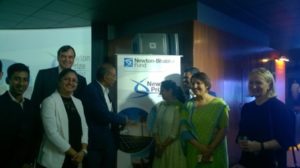
PS: Earlier that day The Royal Society and Science & Engineering Research Board signed an addendum to their MoU in order to extend their partnership for the next three years to provide Newton- Bhabha International Fellowships to 45 postdoctoral fellows.